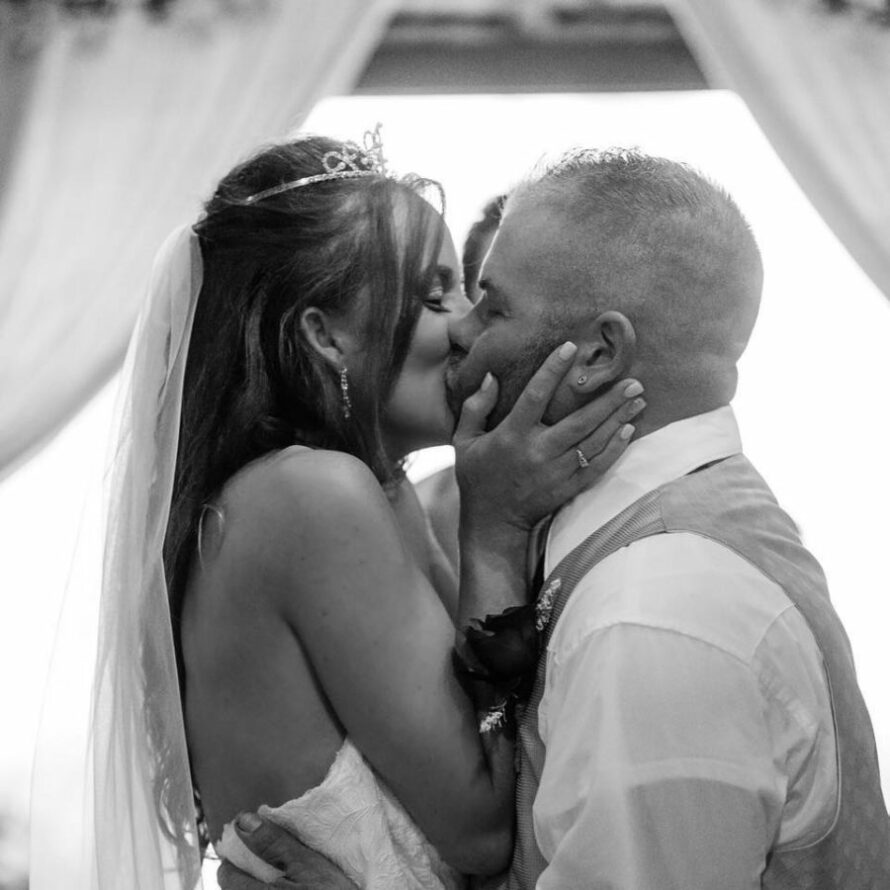If You Are The One. It’s been dubbed the world’s biggest dating show and, in it, a male suitor presents himself to 24 ladies. Together, they ask and answer questions about each other and, as each round goes by and they get to know each other better, the ladies can opt to remain in or out – and the fellow, too, can ask them to stay – or leave, based on whether he things she may be The One.
Aa the end of the round, in theory, the two soulmates find each other and walk off-stage hand-in-hand.
Yeah, right! Real life is not a game show, and one of the biggest questions facing young people in relationships is the same as these contestants: are they The One?
The biggest problem is that many people do not have a good way of working this out.
Australian Strategic Therapist and relationship expert Phil Owens shares his advice how best to decide if the person you want to marry is the person you should marry.
Getting it wrong
You may have heard stories from friends about how a partner seemed like the ‘perfect choice’ until they entered into a relationship and the person was not what they seemed. Even worse, the story of the person who keeps ending up with the same ‘bad egg’ type of partner over and over. For whatever reason, they seem to keep getting it wrong.
“Getting it wrong can be expensive, emotionally upsetting and have significant life consequences, ” whose business, Melbourne-based Reflective Resolutions, specialises in helping couples address any anxieties, fears and relationship issues, particularly in the lead-up to their wedding day.
“However, there are ways to avoid this scenario.”
Getting it right
How do you know when your partner is The One? How will you know when you get the Mr or Ms ‘Right’ for you?
“Take a moment and answer that question,” adds Phil. “It may just be the most important question you ever answer.”
Working out HOW to decide if your partner is up to scratch is critical to long-term partnership success. Everyone is different, so there is no specific ‘type’ that will suit everyone – it is just a matter of working out and finding what is right for you.
Why do people get it so wrong?
Attraction and love are emotional things. That first flush of love or lust is wrapped up in very powerful feelings and emotions. It is Nature’s way of gearing us up and starting the process of finding a partner. It can also be scary and exciting to have such feelings and attractions (particularly in cultures where these may be frowned upon). Often these feelings provide the basis for romantic decision making.
“Feelings- along with trusting your gut, numerology, star signs, palm readers and the like – may all be ‘convincing’ to you,” says Phil, “but, in my opinion, “they all, as a rule, are terrible sources of decision making on something as important as life-long partnership.
“In every one of these cases, we are overlooking ‘fact’ and using a series of powerful biases and thinking short cuts which demonstrate no better than chance (often far worse) in decision making exercises.”
How you feel about someone will change in a long term relationship. Consider how often your feelings change, and even how often you can have multiple feelings at the same time about someone in your life. Feelings give you a powerful sense for ‘now’, but tell you nothing of the future.
“As for these other ‘intuitive’ methods, they often work by providing confirmation bias (“I thought he was the one, and the psychic confirmed it!”), and generalisations into which your facts neatly fit (see cold reading for more information),” says Phil.
“They provide no facts and are proven untrustworthy for forecasting or decision making.”
Without taking the time to really think about the perfect partner, we often use ‘fast, near enough’ thinking and are open to getting it very wrong.
The question “what do I need from this person so that they will make a great partner” is a difficult question. It requires effort to decide on the criteria, effort to compare your beau to these things and the challenge of not knowing what will happen in future.
“Our brains prefer to take short cuts, and unless we make a conscious effort, our minds would prefer to find a low effort, ‘close enough’ answer instead of rigorously thinking about it,” adds Phil. “It is human nature, and one of the most common ways that it shows up is in a process known as substitution bias and intensity matching.”
It is so much easier to take a simple characteristic (“They make me feel good”), work out that you have a strong response to this, and substitute this positive, intense response into the harder question (will they be a great long term partner?).
“I have people see me in clinic for relationship issues, and when I ask “What makes a good partner” the list is a set of classic substitutes: “They are handsome”, “They make me laugh”, or “They are sexy”, etc.” adds Phil. “They answer these questions (in the present, not even thinking if things could change), get a strong positive feeling, and substitute it into the real question – would they make a good long term partner? The person thinks they have answered the hard question, but in fact they have deceived themselves with their thinking shortcut.”
This, unfortunately, happens all the time in all areas of our lives – and when selecting a partner, it is valuable to force the brain to do proper thinking, instead of taking the substitution short cut.
Being thoughtful – list the criteria that matter
Here is a different approach. Start by creating a list of what is important to you, what you need, and what you would like to have in a long term partner. For every person, this will be different, so spend some time thinking about your unique needs and wants. For example, for some people ‘getting on with my parents’ might be critical, and for others it might be completely irrelevant.
Once you have made your list, review it.
“Ask yourself why that feature or attribute is important to you,” says Phil. “Often things are important because they are important to us, and other things are important because we believe it would influence how others would see us.”
A great example is “he has to be strong”, or ‘she has to be slim” – when you ask yourself ‘why’, you might find out that this point may have more to do with what you think others will think of you, than have some deep intrinsic meaning for you.
Choosing a partner on characteristics of social acceptability is fine, but it is important to be aware that these characteristics are not to serve you, but your social image. It may be when you run this process, you can really define what matters to you (rather than to everyone else, as they are not marrying your partner, you are!).
“Develop ‘no go’ criteria – absolute cut-off attributes or behaviour (anger issues, a hunter, a smoker) that you will not accept,” suggests Phil. “These are against your core values or safety, and that you will never compromise on. Simply put, if these show up in a partner, it is ‘game over.'”
In the end you should end up with a clear shopping list. Now when you meet people you can have fun working your way through it and find out if they match what you want as you spend time with them– or if they are an absolute no-go.
“If you meet someone and they don’t match your list, don’t stick around,” advises Phil. “Some people go out for months and months with people that they know are not right – some even get dragged down the aisle on a path to disaster. It is often clear to friends and family that it is not working, but no-one has the courage to speak up.”
If they don’t match your list, you are only prolonging the agony for you both. If it’s not right, finish it well for you both and get on with finding the right person for you.
‘But they will change!’
“I’m sorry, but if they have to make dramatic changes in their personality, behaviours and preferences to meet your needs, they are not The One,” says Phil. “This idea that you can ‘change’ them assumes a whole lot of bad stuff about you, them, and the partnership.
“Accept them as they are – don’t try to squeeze them into your list if they just don’t fit.”
So romance is dead?
Not at all! Those feelings of love, lust, attraction and togetherness are powerful and wonderful. Once the flush of these is gone, then the serious questions need to be asked about your suitability as a long term couple.
“Life is not a game show,” says Phil. “Take the time and effort to get it right and enjoy a lifetime of joy, happiness and love.
“They are out there, so isn’t it time to be smart about finding out if they are The One?”





